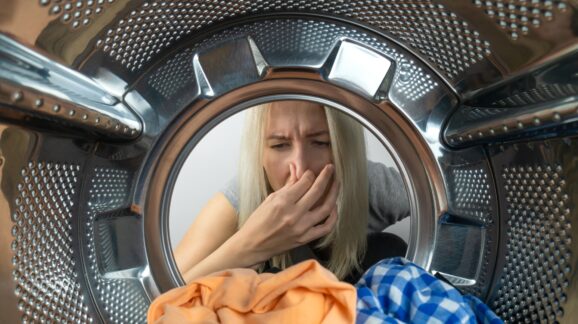Biden administration wants to make bad clothes washers even worse

Photo Credit: Getty
The Biden administration started the year by targeting gas stoves and has followed it up with a flood of additional appliance regulations. This includes Department of Energy (DOE) proposals for dishwashers, air conditioners, refrigerators, and clothes washers. All of them are trouble, but the proposed clothes washer efficiency standards really stand out.
As it is, the current federal restrictions on energy and water use in clothes washers have proven to be so stringent and poorly thought through that they have led to big problems for consumers. Yet the agency now proposes to make them even worse, claiming climate change as well as consumer benefits in doing so. That is why CEI and veteran appliance repair technician Michael Mannino submitted a comment to DOE urging the agency to withdraw the proposed rule and focus instead on addressing the problems caused by existing regulations.
Mannino has serviced thousands of clothes washers since 1980, including ones that predate DOE regulations and ones that comply with them. The difference is striking, especially after ultra-stringent standards took effect in 2007. As we discuss in the comments, regulated clothes washers aren’t as reliable as the ones that preceded them, and they don’t last nearly as long. They also don’t get clothes as clean, and often accumulate mold and mildew – a problem that was virtually non-existent before federal regulators started meddling in clothes washers.
The craziness has reached a point that it is not uncommon for consumers to dump a bucket of extra water into their washers in an attempt to get better results. Others use a garden hose. Simply put, the current regulations forbid clothes washers from using enough water to do the job right. In addition, machines have also had to replace the traditional agitator with more energy efficient but less effective alternatives for getting the dirt out of clothes. Despite the problems caused by all of this, DOE now proposes to tighten the current limits.
Fortunately, the statute under which DOE sets these standards, the Energy Policy and Conservation Act of 1975, contains a number of consumer protections against poor appliance performance. First, the statute explicitly precludes the agency from setting an energy and/or water efficiency standard that harms product quality – which the prior clothes washer standards clearly violated. It also contains corrective measures if such harm does occur. That is why we urge the agency to withdraw its ill-advised proposal to double down on failure and instead start the process of revising current regulations to restore clothes washer quality to what existed before the feds got involved.
Though it is highly unlikely the agency will listen to us, the comment helps set the stage for possible litigation against a final rule that harms consumers. It also shines a light on the problems with clothes washer regulations for those in Congress who may want to consider legislative solutions. The end goal is to repeal or at least constrain the federal government’s authority to micromanage clothes washers as well as all other home appliances.